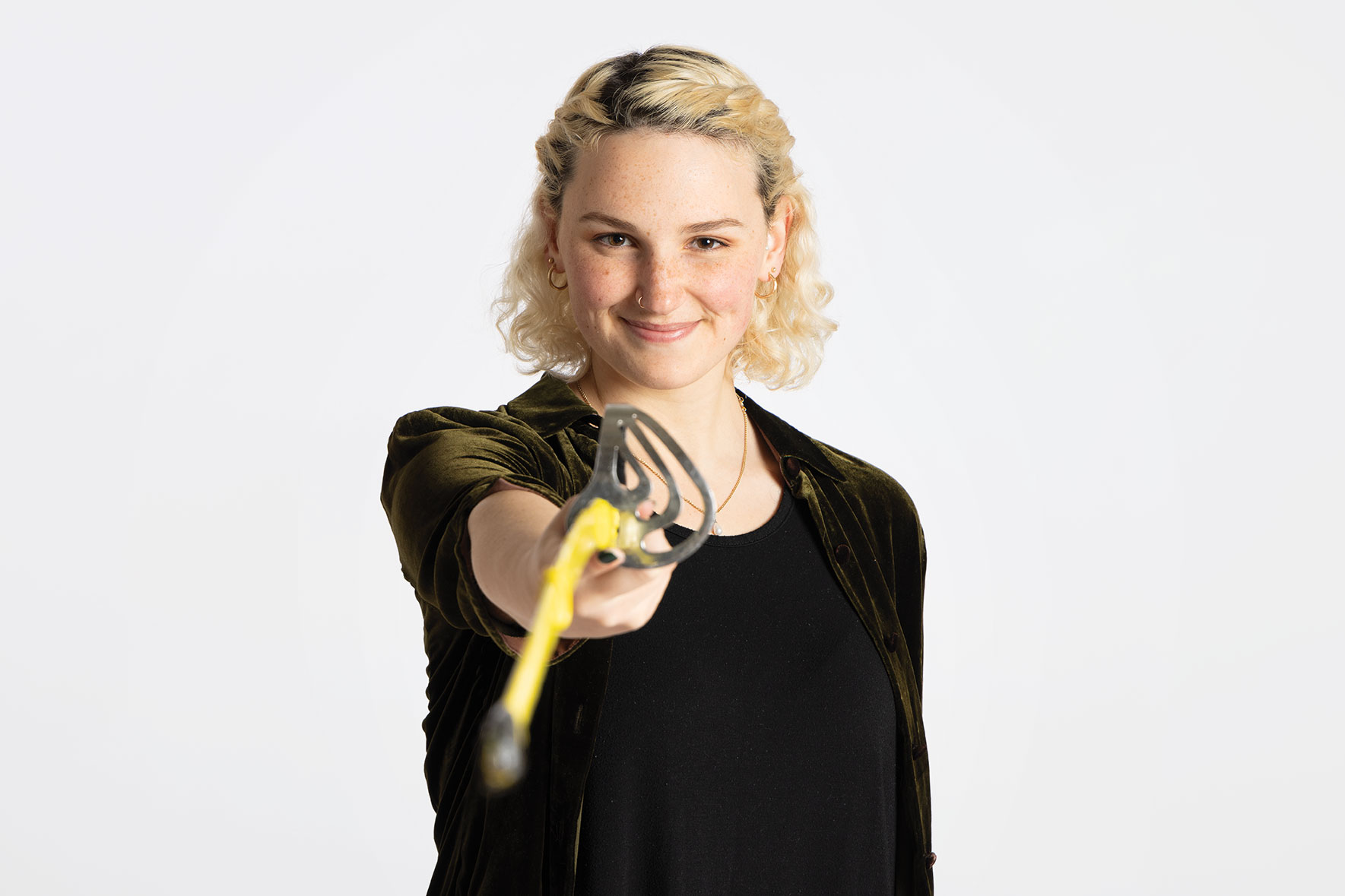A Fish Holds Her Eggs in Her Mouth for Two Weeks. Why?
Meet neuroscience major Bean Fischer.
Hometown: Salem, New Hampshire
Thesis advisers: Profs. Kara Cerveny and Drew Anderson [biology]
Thesis: “Honey I Ate the Kids: Cichlid Fish, Their Fry, and Fluorescent Imaging”
What it’s about: I investigated the neural expressions and mechanisms underlying a costly maternal care behavior called mouthbrooding, where the female incubates her eggs in her mouth for a two-week period. During this time she doesn’t eat, and I wanted to understand why. I used lots of chemicals and fancy fluorescent images to tackle this exciting behavior.
What it’s really about: A fish holds her eggs in her mouth for two weeks of starvation . . . why? How is the brain responsible?
Influential professor: Prof. Dana Katz [art history]. Comparing the production of art to the production of science—the art of the copy and scientific reproduction! Dana was always supportive of exploring art history from different perspectives, and that allowed me to pursue the intersection of scientific community and artistic creation. Every year there is a worldwide neuroscience art competition—who knew?! Seeing art meld with science pushed me to use fluorescent imaging techniques in my thesis and to see my experiment for its brains and its beauty.
Influential book: Citizen by Claudia Rankine is a poem-lyric essay hybrid (with fascinating pictures) meditating on race and citizenship in contemporary America. I highly recommend reading it with the accompanying audio version.
Concept that blew my mind: People don’t notice when color disappears from their peripheral vision.
Cool stuff: My freshman orientation trip was whitewater rafting on the Klickitat River, and I got to go again as an orientation leader my senior year. I even met one of my best friends on my freshman trip, who became my rafting coleader as a senior. Tutoring was a big part of my time at Reed, every week for three years—somewhere around 500 hours altogether. I also spin weapons and flags in my free time.
Ability developed at Reed: Having amazing mentor relationships. Prof. Sarah Schaack [biology] was not only an influential professor in my time at Reed but was also one of my biggest supporters. The guidance and care from faculty and staff are an integral part of my relationship to Reed.
How Reed changed me: I grew out my hair, shaved it off, then let it grow out again. A shaved head is a testament of my Reed experience.
Awards, grants, fellowships: I was a Reed College Science Research Fellow, and being able to work full time doing lab research prepared me for the grind of thesis.
What’s next: More fish! Research with them, rafting with them, maybe even getting one as a pet (or tattoo!). I’m also doing nonprofit work helping first-generation students get into and graduate from college!
Tags: Academics, Students, Thesis, What is a Reedie?
